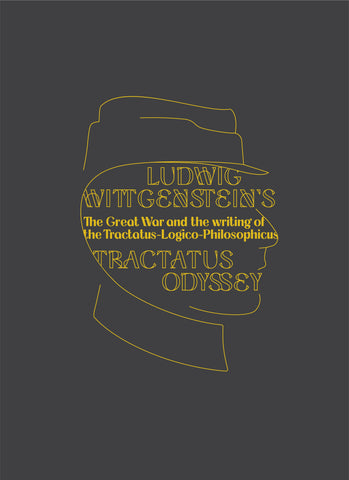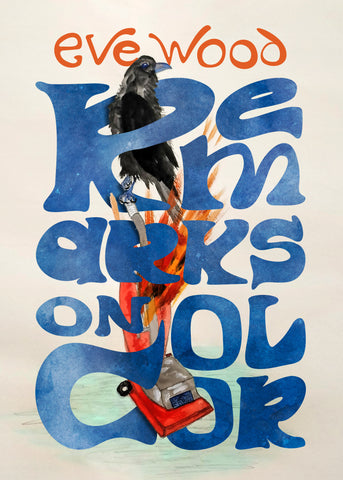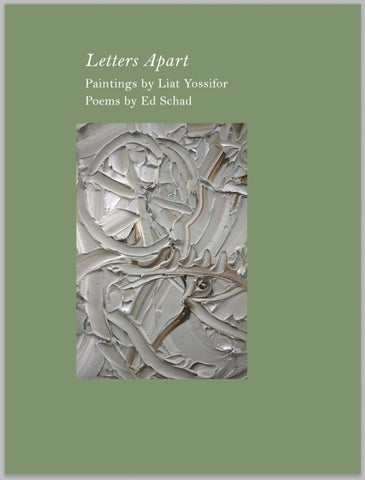
PREORDERS AVAILABLE NOW.
By Peter Delpeut
240 pages.
May 2022. Paperback.
Book design by Tauras Stalnionis
$24.95 | 9781954600034
The texture of memory and the ability of art and film to bear witness to traumatic events are delicately approached in this book-length essay by a Mekas cinephile.
For years, filmmaker Peter Delpeut has had Jonas Mekas's Movie Journal within easy reach of his desk. Since his student days, he has been a great admirer of the Lithuanian-American ‘Godfather of avant-garde cinema’. Until he was startled in June 2018 by an article in The New York Review of Books. Historian Michael Casper claimed that Mekas had deliberately forgotten or misrepresented certain events during World War II. Seeded by this controversy over Mekas’s memories of his Lithuanian youth and Mekas’s pain over his subsequent exile, Delpeut’s essayistic and self-reflective book flowers into an inquiry about memory and forgetting; the moral compass of the future that cannot find its bearing in the past; the abilities of art to witness; and the roles we all must play in writing the adequate history of events too traumatic for a just accounting.
Although there is little doubt that Mekas himself never participated in the horrors of the Holocaust in Lithuania, his silence about the fate of his Jewish countrymen and neighbors could be said to enable a rewriting of history, at the sacrifice of witness testimonies. As Delpeut follows Mekas through films, diaries, his public performances, his speeches, and finally his testimony given to the United States Holocaust Memorial Museum (USHMM), he encounters an impasse for which he was not prepared.
PRESS and PRAISE
Whatever track Delpeut follows, whatever line of reasoning he tries, he will not arrive at a complete understanding, let alone an unequivocal judgement. His thoughtful, vulnerable, meandering attempts fascinated me. The failure of Jonas Mekas's rehabilitation ensured that this book about him was successful.
—De Groene Amsterdammer
Delpeut examines how distorting memory can be, tests the [accusatory] claims against the work of Mekas in his films, diaries, poetry, and testimonies. His book is a fascinating case of historical criticism.
—Art Magazine Flanders
What to do if a hero falls from his pedestal after a bad revelation? Continue to enjoy his work, carefree as usual; only tolerate it; or [perform a] hard cancel? Peter Delpeut, director of Felice… Felice… (1998) and writer of several books including The Forgotten Season (2007), opted for a fourth rather rigorous option. […] He decided not to draw any conclusions and to do his own research first. That research led to a complete book; an essay in which Delpeut treats not only the alleged misdeeds of Mekas, but also the nature of memories, and historiography in general.
—Never Sleep Again [broadcast]
A particularly haunting book. […] Delpeut examines “the Mekas case” from all sides. Is it possible that it is a matter of misunderstanding, repression, genuine forgetting, or ignorance? Almost obsessively, Delpeut tries to find an explanation for Mekas’s silence: historical, psychological, moral. Delpeut is a stakeholder: for him as a young cinephile Mekas has been a beacon, opening his eyes to the value of found footage, non-narrative film, and other forms of underground cinema. […] Very compelling.
—We’ll Always Have Paris
Radical subjectivity is the basis of Mekas's work. Delpeut struggles with his admiration for Mekas. “My hero must not be a liar,” says Delpeut. How is he to judge Mekas' past? A man writes about a man who has written about a man who made movies about his memories. Such a topic is difficult to describe. The book contains many, all equally interesting aspects.
—Trouw Zeitgeist
Praise for Past Works:
For In Defense of Dawdling:
“Of course, after reading it you will want to stroll past these artworks, just like Delpeut.”
— Literary Netherlands
For The Forgotten Season:
“An exceptionally mature novel.”
—The Groene Amsterdammer
“Wonderful novel.”
—NRC Handelsblad
“A mysteriously beautiful book that trips us and surprises us.”
—Literary Netherlands
For In the Black of the Mirror:
“Delpeut is a careful and visual writer and knows how to awaken life with his descriptions of the wanderings through landscape paintings. […] Not a book that you read in one go, but that in small fragments take in.”
—het Parool
“A compelling masterpiece. […] Literature at its best: obsessive, detailed, curious and full of tantalizing reflections and encounters.”
—The Groene Amsterdammer
“The book is thicker than my fist because Peter Delpeut elaborates. A detail from a [painting] can take many pages, […] Delpeut writes in a meandering, micro-detailed way, but also with fascinating mindfulness; he forces you to look far from our present hectic existence. […] Delpeut does not impose anything. He leads the way. And the road is fascinating all the way to the end.”
—Esquire, Netherlands
ABOUT THE AUTHOR
Peter Delpeut (b.1956) is a Dutch author and filmmaker. He has written four novels, several essay books on art and film, and two lyrical books about long distance cycling. The Dutch version of The Big Bend about his cycling trip from Orlando to Las Vegas enjoyed numerous reprints. For his debut novel in 2007 he was nominated for the Gerard Walschap Prize and awarded the Halewijn Prize. He makes films in many genres: found footage, documentary and features. Many of them are critically acclaimed and prizewinning films. He studied philosophy and film theory, graduating from the Dutch Film Academy in 1984. He served as editor for film magazines Skrien and Versus. From 1988 to 1995 he worked as curator and deputy-director for the Netherlands Filmmuseum (now Eye), famous at the time for its revolutionary color preservations of films from the silent era. In 2005 a retrospective of his film work was presented in Washington, New York and Berkeley. He currently lives in Amsterdam.


